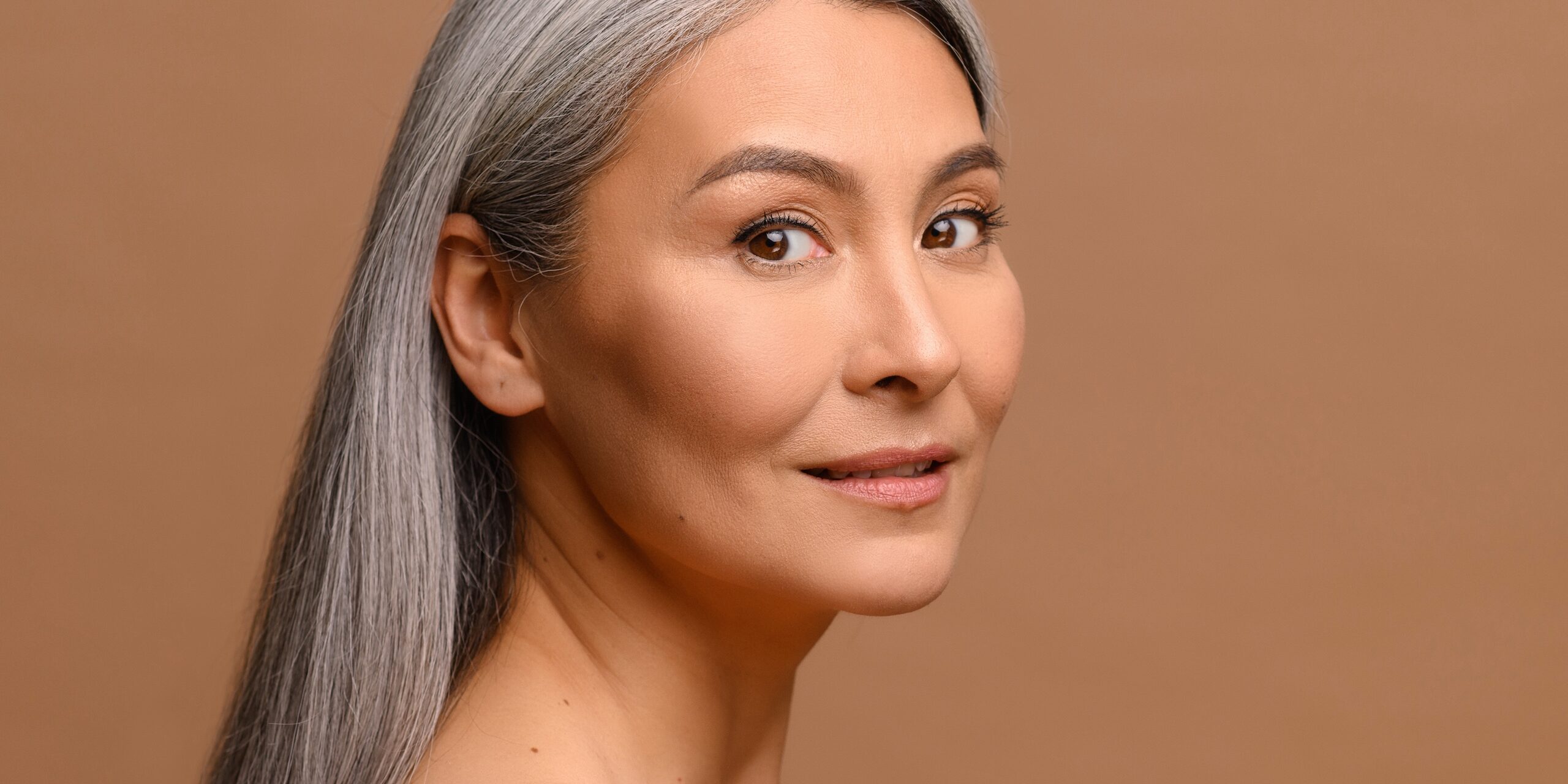Skin is the largest organ of the body – therefore, your hormones can have a significant impact on your skin health throughout your lifetime. Just ask anyone who breaks out before their menstrual cycle begins, gets dark spots on their face during pregnancy, or experiences dry, sagging skin during menopause.
Understanding how hormones affect your skin health and knowing what skin changes to expect can help you prepare for them properly and treat them more effectively. The skin care experts at The Derm are here to guide you through hormone fluctuations as you age and help keep your skin as healthy and radiant as possible.
What are hormones?
Hormones are chemicals that coordinate different functions in your body by carrying messages through your organs, muscles, and other tissues – including your skin. Hormones tell your body what to do and when to do it, from growth to reproduction to mood control.
Scientists have identified over 50 hormones in the human body so far, but there are three key hormones that can change the look and feel of your skin: estrogen, progesterone, and testosterone. Each of these hormones plays a different role in your skin health.
- Estrogen – Helps stimulate the production of collagen, elastin, and hyaluronic acid to keep your skin plump and firm
- Progesterone – Helps stimulate the production of sebum (oil) in your skin, which improves elasticity but can also cause breakouts
- Testosterone – Works similarly to progesterone by activating your skin’s sebaceous glands to produce oil
Estrogen and progesterone also increase melanin production, which can cause your skin to darken. Even cortisol – known as the “stress hormone” – can increase inflammation in your skin, potentially exacerbating skin conditions like eczema and psoriasis.
Let’s take a closer look at some common stages of life that are hormone-driven and what you can do to reduce their impact on your skin health.
Skin health during the menstrual cycle
The hormone fluctuations that occur during your menstrual cycle often show up on your skin. During days 1-6, your estrogen, progesterone, and testosterone levels are all low. You may notice that your skin seems dry and dull. If so, using the right moisturizer can help keep your skin feeling refreshed.
Estrogen production begins at days 7-11, making this an ideal time to use a gentle exfoliant to help slough off dead skin cells and reveal the healthy skin underneath. Estrogen production peaks during days 12-16, which is when your skin will look its healthiest.
From days 17-24, your estrogen levels decline and progesterone production ramps up, making you more prone to oily skin and breakouts. Using a deep-cleansing mask during this time can help ward off potential blemishes.
Days 25-28, right before the menstrual cycle begins, is when testosterone production takes over – and when menstrual cycle breakouts are most likely. Using a cleanser that contains salicylic acid can help fully cleanse your pores and kill any bacteria present.
Ask your dermatologist to recommend the best skin care products for your unique skin.
Skin health during pregnancy
Pregnancy brings a surge of hormonal changes, including higher levels of estrogen and progesterone. Many women experience a “pregnancy glow” due to increased blood flow to their skin, with glowing skin and rosy cheeks. But unfortunately, not all skin changes during pregnancy are positive.
Approximately 50-70% of pregnant women experience melasma – dark skin patches that typically appear on your forehead, nose, cheeks, or upper lip. This hyperpigmentation caused by hormones can cause existing moles, freckles, or birthmarks on your body to darken as well.
The good news? Most of these darker areas fade over time, often within a few months after giving birth.
The increased blood flow and oil production behind the “pregnancy glow” also tend to cause acne, especially if you don’t follow a proper skin care regimen. Most over-the-counter acne cleansers and treatments are safe to use in pregnancy, but check with your dermatologist first. Prescription acne medications like isotretinoin and tretinoin can cause birth defects and should never be used during pregnancy.
Like melasma, most pregnancy-related acne should improve shortly after delivery.
Skin health during menopause
Throughout your life, estrogen plays an important role in protecting your skin from the sun’s harmful UV rays. Estrogen levels decrease during menopause, increasing your sensitivity to the sun as well as your risk of sunburn and sun damage.
Collagen production also decreases – in fact, research shows that collagen production drops by 30% during the first five years of menopause. This reduction in collagen often leads to drier, thinner skin with more sagging, fine lines, and wrinkles as you age.
Using skin care products that contain retinol can help reduce the appearance of fine lines and wrinkles while stimulating collagen production. To treat dry skin during menopause, using an age-defying moisturizer with ceramides can also help lock in moisture. Avoid taking long, hot showers, as they can dry out your skin even further.
When to see a dermatologist
Whether you’re a teenager going through puberty or an older adult in the final stages of menopause, hormone fluctuations can make it challenging to navigate your skin health.
Always consult a dermatologist if you have persistent or severe acne that doesn’t respond to over-the-counter treatments, significant or new skin sensitivity, or any other hormone-related skin issues that are affecting your self-esteem.
By understanding the connection between hormones and your skin, you can take proactive steps to care for your skin through every stage of life.
Schedule a consultation today
The skin care experts at The Derm are here to help! One of our board-certified dermatologists can thoroughly examine your skin, explain your treatment options, and create a customized plan just for you.
To get started, schedule a consultation at our Glenview or Park Ridge office today.







